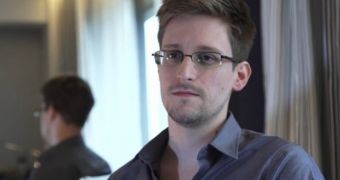Edward Snowden has been talking for the past year about what would happen if he were tried in the United States. In a recent interview, he admitted that if he ended up in US detention in the notorious Guantanamo Bay, he could live with it.
The Guardian’s interview with the whistleblower reveals, however, that while Snowden would be acceptant of his fate, he does hope to get a trial that involves some jurors rather than a simple judge, which doesn’t always happen, especially in cases such as his.
Before the lengthy interview is released later today, the publication shared some snippets of the video, as well as some other details revealed during the chat.
One of the things Snowden said was that he was holding out for a jury trial in the US, where he hopes that it’s going to be hard to find 12 jurors who would convict him if he were charged with an offense to which there was a public interest defense.
Even so, Snowden envisions his future in Russia, where he believes he’ll be for a while longer, especially as the western European governments have failed to offer him a home, which he finds disappointing.
The 31-year-old says that he spends most of his days working late, much like he did before the entire story began. Snowden is certain that he’s being watched by both the US and the Russian intelligence services, but that doesn’t stop him from working on encryption tools to help professionals, such as journalists, protect their sources and data.
“An unfortunate side effect of the development of all these new surveillance technologies is that the work of journalism has become immeasurably harder than it ever has been in the past,” Snowden assessed.
The whistleblower explains that now journalists need to be aware of everything going on around them, from network signals, to license-plate reading devices passed while going for a meeting, to where they use their credit cards and where they take their phones. The email contacts made with a source before contact are also important, especially before encrypted communications are established.
It’s not only journalists that need to be especially attentive to the security around them, but also other professionals. Lawyers, doctors, accountants, and even priests, as well as any others who have a duty to protect confidentiality need to upgrade security to respect their jobs.
All of these are particularly troubling, but as many have pointed out, it is important for a democracy that the press is free and journalists are able to do their job without fear or hindrance from the government or other type of authorities.
Edward Snowden is currently living in Russia where he obtained temporary asylum last year. The protection lasts until the end of the month, but the whistleblower’s lawyer has already filed the paperwork for an extension which he is quite likely to get.

 14 DAY TRIAL //
14 DAY TRIAL //